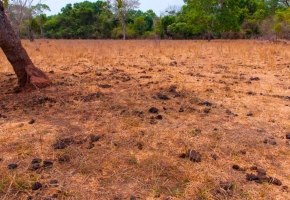Noise, blazes and mismatches: emerging issues of environmental concern

Humanity has altered the planet in many detrimental ways, from the warming of our climate to the ever-diminishing wildernesses on land and in the sea. But in such a complex system as the Earth, science must always keep searching – for both solutions to problems already identified and new threats coming our way.
UNEP’s Frontiers Report does this by identifying and exploring areas of emerging or ongoing environmental concern. The 2022 edition delves into three issues: noise pollution in cities, the growing threat of wildfires and shifts in seasonal events – such as flowering, migration and hibernation, an area of study known as phenology.
As cities grow, noise pollution is identified as a top environmental risk. High levels of noise impair human health and well-being – by disrupting sleep or drowning out the beneficial and positive acoustic communications of many animal species that live in these areas. But solutions are at hand, from electrified transport to green spaces – which must all be included in city planning with a view to reducing noise pollution.
The trends towards more dangerous fire-weather conditions are likely to increase, due to rising concentrations of atmospheric greenhouse gases and the attendant escalation of wildfire risk factors.
Although wildfires are a striking impact of climate change, phenological shifts are equally worrying. Plants and animals often use temperature, the arrival of rains and daylength as cues for the next stage in a seasonal cycle. Yet climate change is accelerating too quickly for many plant and animal species to adapt, causing disruption to the functioning of ecosystems.
We cannot have a healthy society without a healthy environment. And we need good science to inform responsible policies that back a healthy environment, which the Frontiers Report provides.
Source: UN Environment Programme
Image: UNEP Frontiers’ report







